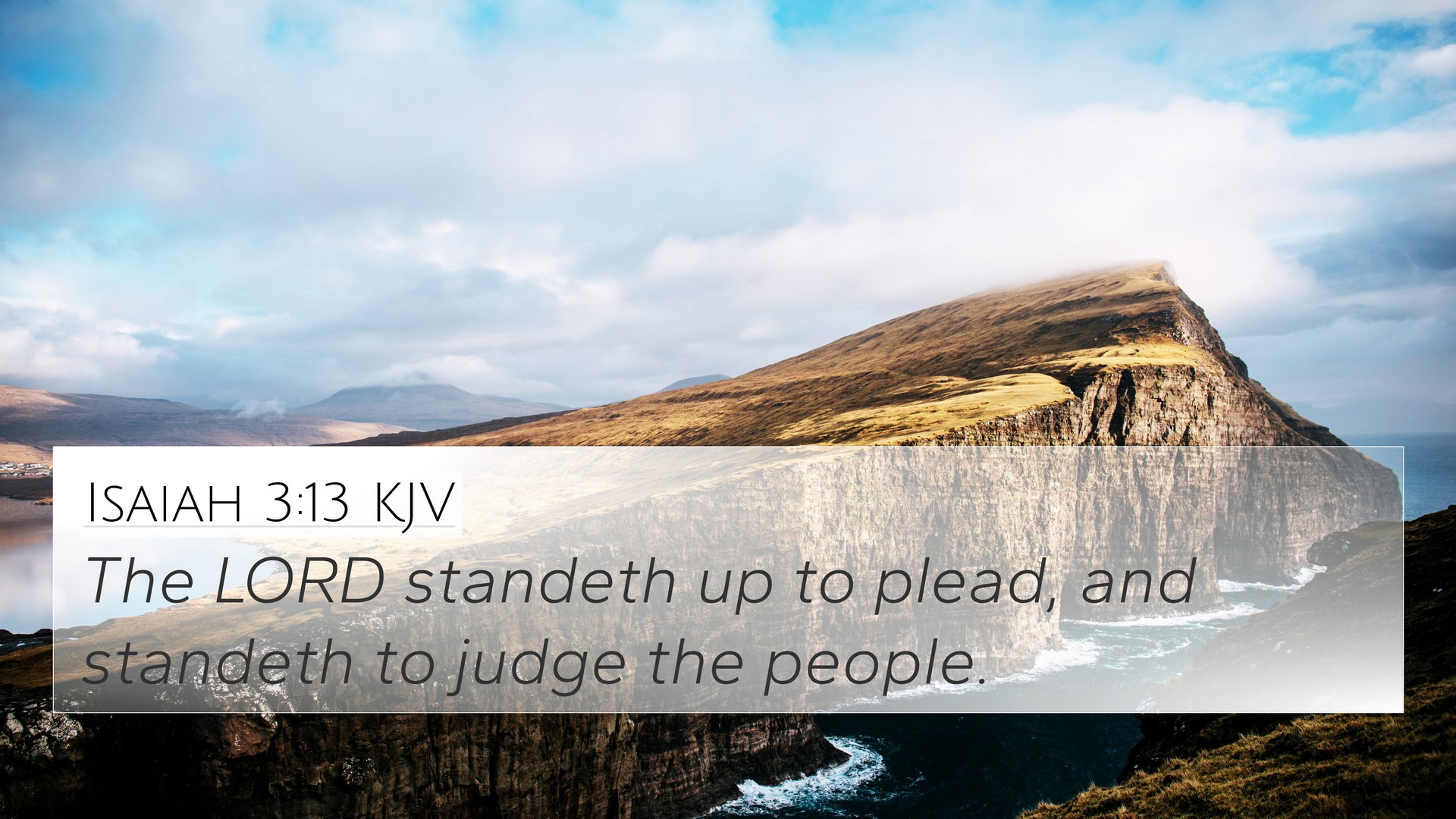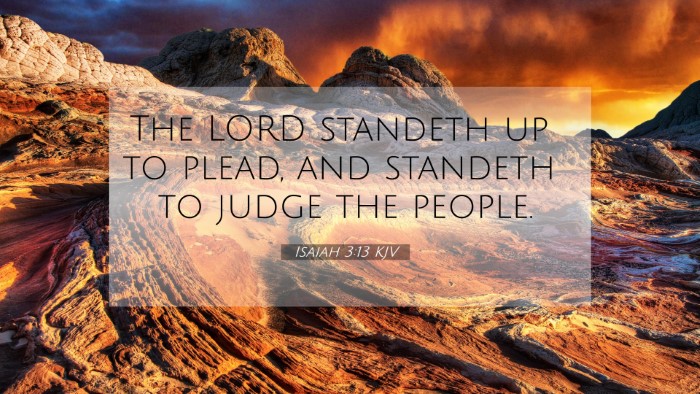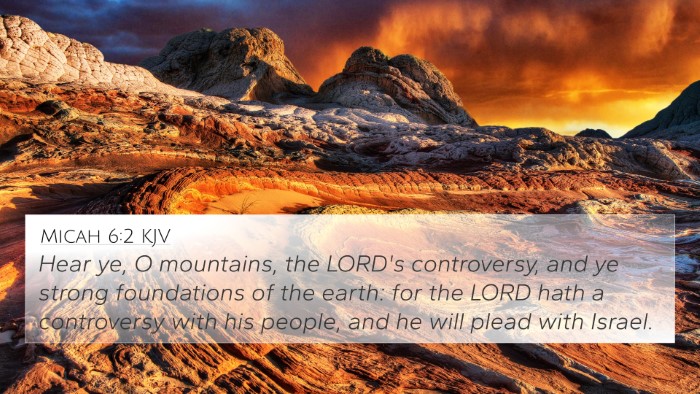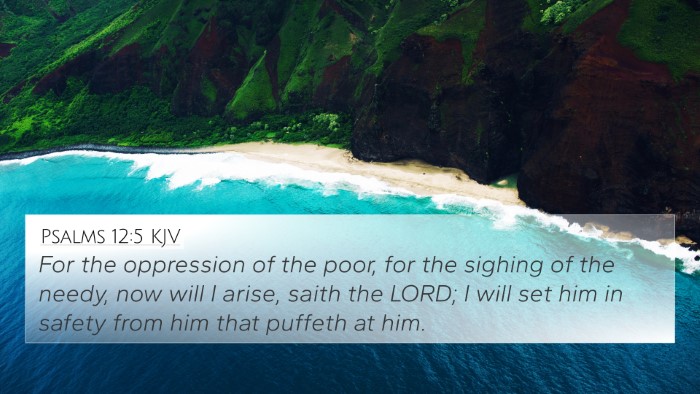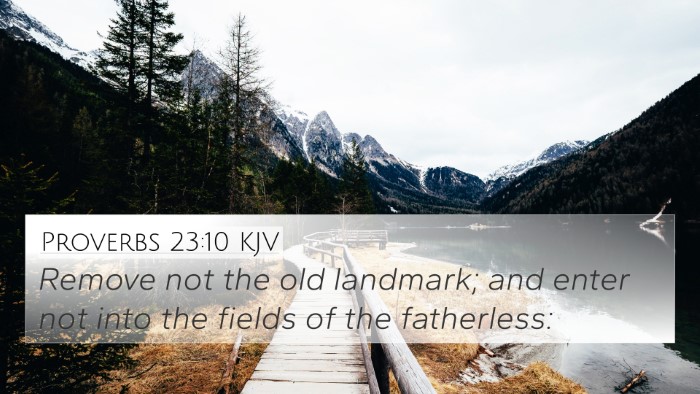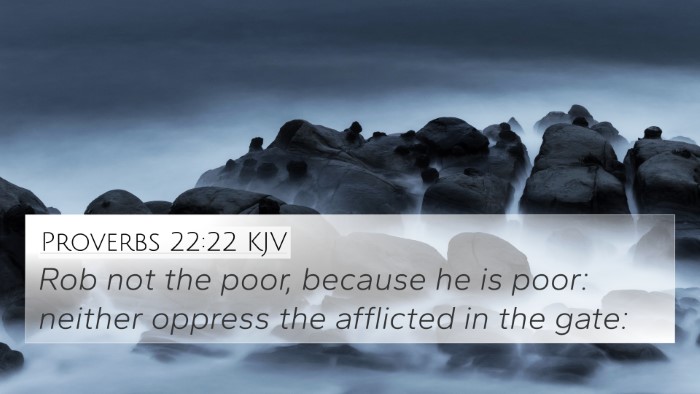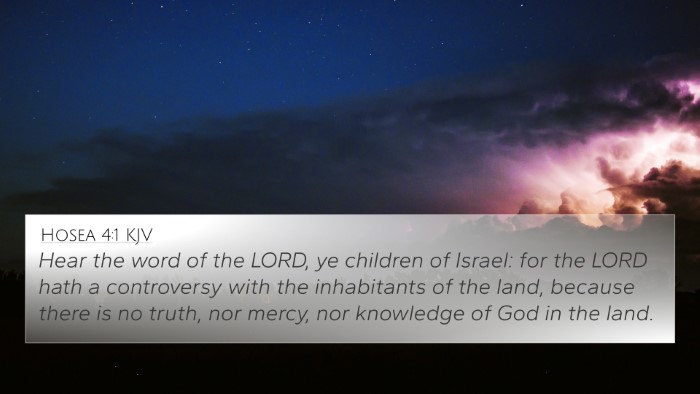Understanding Isaiah 3:13
Verse: Isaiah 3:13 - "The Lord stands up to plead, and stands to judge the people."
Meaning & Interpretation: This verse provides a profound insight into God’s role as both advocate and judge. The imagery of God standing signifies His active involvement in human affairs, particularly in the scrutiny of justice and righteousness among His people.
The verse reflects the theme of divine judgment, where the Lord is seen not only as a passive observer but as an engaged party ready to address the injustices present among the people. As public commentary from Matthew Henry suggests, this stands as a reminder of God's attentiveness and the assurance that He will hold individuals and nations accountable for their actions.
Albert Barnes further elaborates that the divine judgment addressed in this verse serves as a beacon of hope for the oppressed while simultaneously serving as a warning to the unjust. The phrase "stands to judge" implies an immediate readiness to administer justice, which aligns with the broader biblical narrative of God’s covenant relationship with Israel, emphasizing the significance of moral conduct.
Adam Clarke adds that the implication of God pleading for His people indicates His desire for reconciliation and encourages them to return to righteous paths. It is a call to awareness that divine justice is inescapable and that one must reckon with their actions before God.
Related Bible Cross-References
- Psalm 50:4 - "He calls to the heavens above, and to the earth, that he may judge his people."
- Micah 6:2 - "Hear, O mountains, the Lord's accusation; listen, you everlasting foundations of the earth, for the Lord has a case against his people; he is lodging a charge against Israel."
- Hebrews 10:30 - "For we know Him who said, 'It is mine to avenge; I will repay,' and again, 'The Lord will judge his people.'
- Romans 14:10 - "For we will all stand before God's judgment seat."
- 2 Corinthians 5:10 - "For we must all appear before the judgment seat of Christ..."
- Revelation 20:12 - "And I saw the dead, great and small, standing before the throne, and books were opened..."
- Jeremiah 11:20 - "But, O Lord Almighty, you who judge righteously and test the heart and mind..."
- Amos 5:24 - "But let justice roll on like a river, righteousness like a never-failing stream!"
- Psalm 9:8 - "He rules the world in righteousness and judges the peoples with equity."
- Proverbs 21:15 - "When justice is done, it brings joy to the righteous but terror to evildoers."
Thematic Connections
This verse serves as a central point for understanding various themes in the Bible related to judgment, justice, and accountability. The connections between these verses highlight the importance of moral integrity and God’s unwavering commitment to justice, which is echoed across both the Old and New Testaments.
Tools for Cross-Referencing: To delve deeper into these connections, one can utilize tools such as Bible concordances and Bible cross-reference guides. These resources allow for effective cross-referencing in Bible study, uncovering rich layers of meaning that enhance understanding of scriptural themes.
How to Use Bible Cross-References
Understanding how to find cross-references in the Bible can enhance one's study experience. Start by identifying key themes or words in a verse, then consult a Bible cross-reference system to see related scriptures. Integrating specific scripture connections can provide a comprehensive view of biblical truths and themes.
Further Study Suggestions
- Identifying Connections: Examine the relationships between Old and New Testament scriptures to gain comprehensive insights.
- Comparative Analysis: Engage in a comparative study of passages, noting the parallels in themes of justice and divine judgment.
- Thematic Study: Focus on biblical verses related to justice, noting how they intertwine with Isaiah 3:13.
- Research Resources: Utilize comprehensive resources available, such as Bible reference materials and chain references.
Conclusion
Isaiah 3:13 is a powerful reminder of God’s active role in justice and the assurance that He is always present to judge the actions and hearts of people. Through the examination of cross-references and thematic connections, one can gain deeper insights into the character of God and His expectations from humanity.
